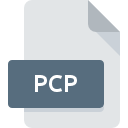.PCP File Extension

Windows Installer Patch Creation Properties File
| Developer | Microsoft |
| Popularity | |
| Category | Developer Files |
| Format | .PCP |
| Cross Platform | Update Soon |
What is an PCP file?
.PCP file extension is associated with Windows Installer Patch Creation Properties files.
These files contain configuration settings and metadata used by the Microsoft Windows Installer Patch Creation Tool (MSPATCHA.EXE) to generate installer patches.
Installer patches are updates applied to software installations to modify or update existing files or settings without requiring a full reinstall of the application.
More Information.
The .PCP file format was introduced with the Windows Installer technology, which debuted with Windows 2000.
Its initial purpose was to provide developers with a standardized and efficient method for creating patches to update software installations.
Before the introduction of Windows Installer, patch creation was a complex and error-prone process that varied significantly between software vendors and products.
Origin Of This File.
The .PCP file format was introduced by Microsoft as part of its Windows Installer technology, which provides a standardized mechanism for installing, updating, and removing software on Windows operating systems.
The creation of .PCP files facilitates the creation of installer patches, allowing developers to efficiently distribute updates and fixes to their software products.
File Structure Technical Specification.
The .PCP file is a plain text file that contains a set of properties and values used by the Windows Installer Patch Creation Tool to generate installer patches.
While the specific structure and contents of .PCP files may vary depending on the requirements of the software being patched, they typically include the following types of information:
- Patch Metadata: Information about the patch, such as its name, version, and description.
- Patch Files: A list of files included in the patch, along with their source and destination paths, file attributes, and patching options.
- Patch Options: Configuration settings that control the behavior of the patching process, such as compression options, logging settings, and user interface options.
How to Convert the File?
Converting .PCP files aren’t a typical operation as they are specifically used by the Windows Installer Patch Creation Tool. If you need to convert them for any reason, you might consider the following approaches:
- Custom Scripting: Write scripts using programming languages like Python, PowerShell, or VBScript to parse the contents of .PCP files and generates output in a desired format or structure.
- Third-party Tools: Explore third-party software or utilities designed for working with Windows Installer technology. Some tools may offer features for exporting .PCP files to other formats or generating patches in alternative ways.
- Manual Extraction: Manually extract the information from .PCP files and recreate them in another format or tool. This approach can be time-consuming and error-prone, especially for complex patch configurations.
Advantages And Disadvantages.
Advantages:
- Efficient Patching: .PCP files enable developers to create patches that can be applied to existing software installations to update or modify files and settings without requiring a full reinstall of the application.
- Standardized Format: The .PCP file format provides a standardized and well-documented mechanism for specifying patch configuration settings, ensuring compatibility and interoperability between different patch creation tools and software products.
- Reduced Deployment Costs: By enabling targeted updates to software installations, .PCP files can help reduce the costs associated with deploying updates and fixes to end-users.
Disadvantages:
- Complexity: Creating .PCP files and generating installer patches can be a complex and time-consuming process, especially for large or complex software products with many files and dependencies.
- Compatibility Issues: While .PCP files provide a standardized format for specifying patch configuration settings, there may be compatibility issues between different versions of the Windows Installer Patch Creation Tool and the Windows Installer runtime.
- Limited Flexibility: The capabilities of .PCP files and the Windows Installer Patch Creation Tool are limited to the features and functionality provided by the Windows Installer technology, which may not meet all of the requirements of every software product.
How to Open PCP?
Open In Windows
- Windows Installer Patch Creation Tool: .PCP files are intended to be used with the Windows Installer Patch Creation Tool (MSPATCHA.EXE), which is available on Windows operating systems. Double-clicking on a .PCP file should automatically open it in the Windows Installer Patch Creation Tool.
Open In Linux
- Unsupported: The Windows Installer Patch Creation Tool and .PCP files are specific to the Windows environment and do not have native support on Linux. However, you might try using compatibility layers like Wine to run Windows applications on Linux, though compatibility can be limited.
Open In MAC
- Unsupported: Similarly, the Windows Installer Patch Creation Tool and .PCP files are not compatible with macOS. While you might use virtualization software like Parallels or VMware to run Windows on a macOS system and then open .PCP files, this is not a native solution.
Open In Android
- Unsupported: .PCP files and the Windows Installer Patch Creation Tool are designed for Windows environments and are not compatible with Android. These files have no relevance or utility on Android devices.
Open In IOS
- Unsupported: .PCP files and the Windows Installer Patch Creation Tool are not designed for iOS or macOS environments. As such, they cannot be directly opened on iOS devices.
Open in Others
- Virtual Machines: Use virtualization software like VirtualBox or VMware to run a Windows virtual machine on non-Windows systems (Linux, macOS). Once Windows is running, you can open .PCP files using the Windows Installer Patch Creation Tool.
- Third-party Tools: Investigate third-party tools or utilities that claim to offer compatibility with .PCP files on non-Windows systems. However, such tools may be rare, and their reliability may vary.













